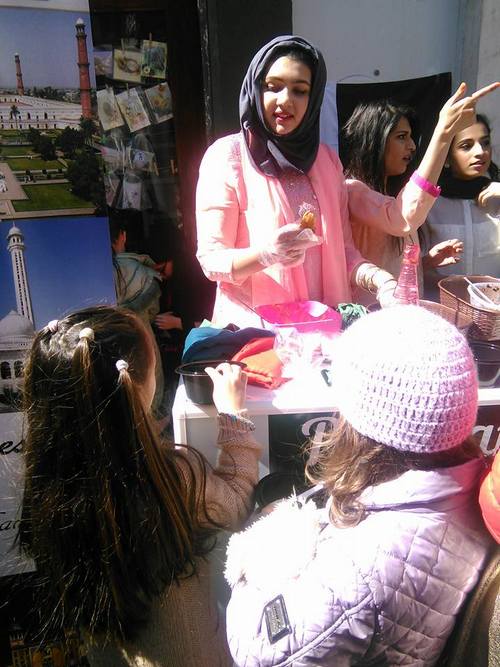Chapter 3 – Working with cultural diversity
How can we prepare teachers to work with culturally diverse children and their families?

New challenges for kindergarten staffs and manager rise for the integration of refugee children and families. Germany and many European countries have to integrate refugees from various countries. The kindergarten is the place where families with young children meet and where there is a way to integrate them into the European culture through direct interaction and knowledge exchange. Unit 3 in Module 5 (link) gives a complete picture of this process in Europe and suggest strategies how to build ties with immigrant parents.
But to integrate families as well as children from other countries kindergarten staff must have basic knowledge about the eating habits, the religious background and rituals for not offending the children or the parents with our European consumption patterns. Below are some suggestions for teacher and parents for achieving some forms of cultural compatibility.
Suggestions for teachers
Culture and family are essential to children’s sense of identity, belonging and success in lifelong learning. Teachers play a very important role in supporting children and families with culturally diverse backgrounds. When teachers are friendly and approachable and they can respect multiple ways of living, it helps children and their families to build a sense of belonging and trust. Some ideas that might assist educators to support culturally diverse families include:
- Be open to different types of families
- Work to develop positive relationships with families
- Mutual respect for diversity
- Be thoughtful about communication
Early childhood educators across Europe must be prepared to teach an increasingly diverse population of young children. More children from immigrant households are enrolled in early childhood programs and the trend is expected to continue into the next decade. There is a great need to develop training programs to adequately prepare teachers to meet the needs of today’s diverse early childhood classes.
Suggestions for families
Parenting across cultures can sometimes be a challenge, especially when the values and expectations of a culture are different from one another. This can make it difficult for families to feel a sense of belonging to any community. The ability of the family to develop a cultural identity and a sense of belonging is important for children, because a sense of belonging and a strong cultural identity supports their mental health and wellbeing. There are lots of things that can help families to develop a sense of belonging, including:
- Identifying your own culture - children’s cultural identity develops through language, storytelling, relationships, and traditions and routines.
- Building social networks - build connections across many different social and cultural groups.
- Seek support - find the right person or organization to help you and your family.
- Remember that it takes time to integrate - adjusting to a new life after migration can have lots of challenges for families and children.
Diversity through food and other activities
Food-related events can provide a brilliant focus for engaging a diverse community.
There are many ways to celebrate diversity for example:
- Involve children (module 3)
- Have a feast (module 4, unit 3 and module 5, unit 2)
- Outdoor learning (module 3)
- Involve parents (module 5, unit 1)
Other learning tools:
Food Mapping is a great activity that combined geography, with some science and nutrition thrown in.
Food museum – exploring and celebrating food
Victorian Early Years Learning and Development Framework, Evidence Paper, Practice Principle 4: Equity and Diversity, Saffigna, Franklin, Church and Tayler / Department of Education and Early Childhood Development 2011
Ozmen, F., Akuzum, C., Zincirli, M., & Selcuk, G. (2016). The communication barriers between teachers and parents in primary schools. Eurasian Journal of Educational Research, 66, 26-46, http://dx.doi.org/10.14689/ejer.2016.66.2
Ozmen, F., Akuzum, C., Zincirli, M., & Selcuk, G. (2016). The communication barriers between teachers and parents in primary schools. Eurasian Journal of Educational Research, 66, 26-46, http://dx.doi.org/10.14689/ejer.2016.66.2



